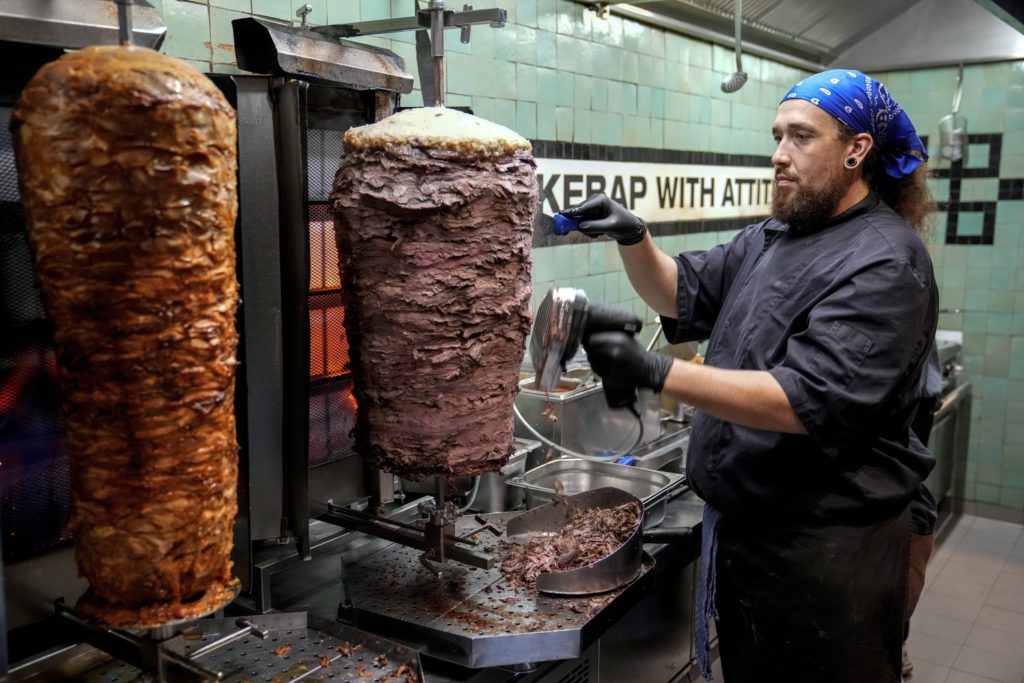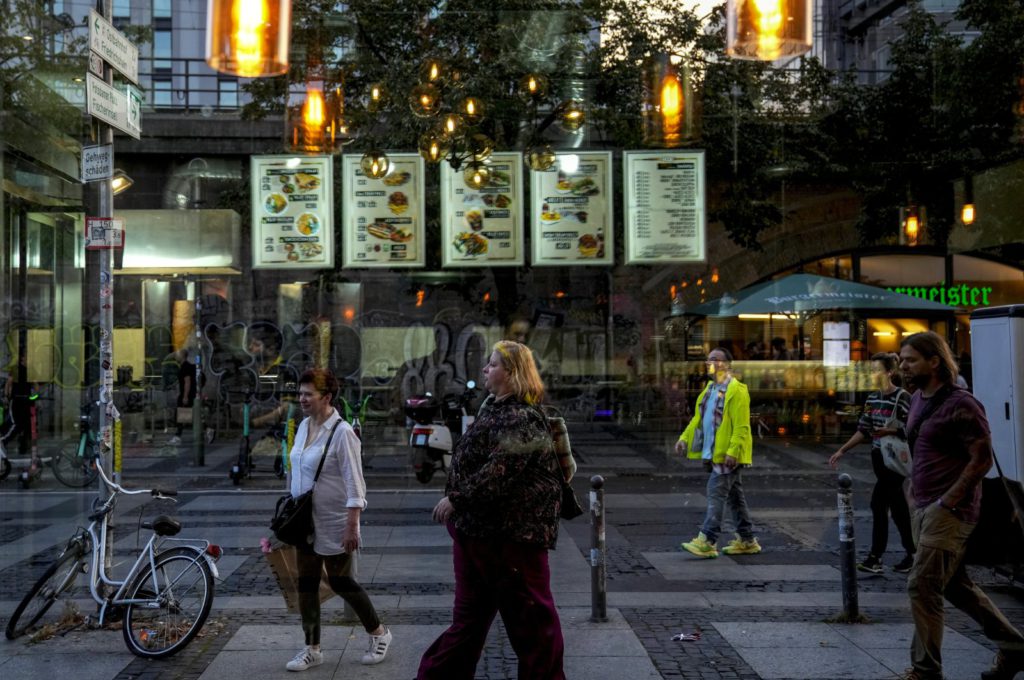Döner, a beloved dish and diplomatic symbol, has become a point of contention as Türkiye urges Germany to honor its traditional origins.
Beef and chicken glisten as they turn slowly on vertical spits, carved off in delicate slices by skilled cooks at Kebap With Attitude, a popular spot in Berlin’s Mitte neighborhood. Piled into pita bread with fresh tomatoes, cabbage, and red onions, the döner kebab has become a quintessential part of German street food culture. However, this iconic snack may face changes if Türkiye succeeds in regulating what can legally be called döner kebab across Europe.

The Turkish government has applied to the European Commission to have döner kebab recognized as a “traditional specialty guaranteed” (TSG), a designation meant to protect the traditional methods and ingredients of this dish. Should the proposal succeed, it could alter how the döner is made and sold in Germany, potentially affecting an industry worth €2.3 billion in Germany alone and €3.5 billion across Europe, according to the Association of Turkish Döner Producers in Europe.
The dish, which originated in Türkiye, derives its name from the Turkish word “dönmek,” meaning “to turn,” referring to the rotating meat on a spit. In its original form, it was served as lamb on a plate. But in the 1970s, Turkish immigrants in Berlin transformed the dish into the popular street food by serving it in pita bread, catering to local tastes.
“They realized that Germans like everything in bread,” explained Deniz Buchholz, owner of Kebap With Attitude. “That’s how the döner kebab Berlin-style came to be.”
Türkiye’s proposed regulation would mandate that beef for döner must come from cattle at least 16 months old, marinated with specific ingredients, including yogurt, onions, and spices, and sliced into thin pieces between 3 and 5 millimeters thick. Chicken would face similar rules. If approved, the regulation would exclude common German variations, such as those using turkey, veal, or certain vegetables, stirring concern among kebab shop owners and the food industry in Germany.
Germany’s Federal Ministry of Food and Agriculture, one of 11 objectors to the application, expressed its discontent: “The kebab is part of Germany, and its diverse preparation reflects the diversity of our country—this must be preserved.” Cem Özdemir, Germany’s food and agriculture minister, echoed this sentiment, stating, “The kebab belongs to Germany…there’s no need for guidelines from Ankara.”
The European Commission is set to decide on the issue by September 24. Should the objections hold, Germany and Türkiye will have up to six months to reach a compromise, though the final decision rests with the Commission. Meanwhile, many in Germany see this as a battle to preserve the culinary freedom that has turned the döner into a cultural icon in its own right.
Despite the looming uncertainty, Buchholz remains unfazed. “It could be a way to maintain high standards for traditional döner,” he mused, acknowledging that some shops have diluted the dish’s quality. Still, Berlin’s culture of creativity might lead shop owners to adapt by rebranding, perhaps as “veggie sandwiches.”
The döner’s significance goes beyond its taste—it has found itself at the center of political debates. Rising kebab prices led the left-wing party Die Linke to call on Chancellor Olaf Scholz for a “price break” to subsidize the popular street food. Scholz declined but explained on social media that the cost increases are largely due to soaring energy prices, worsened by Russia’s war on Ukraine.
Even diplomatic relations have felt the influence of the kebab. In April, German President Frank-Walter Steinmeier engaged in “döner diplomacy” by bringing a third-generation kebab shop owner and a skewer of döner meat to Türkiye on an official visit.
The German Hotel and Restaurant Association has also voiced concerns, stating that Türkiye’s proposal could lead to economic challenges for kebab shops and potential legal disputes, arguing, “The diversity of the kebab must be preserved.”
As the debate unfolds, one thing is clear: the döner kebab is more than just a snack—it’s a symbol of cultural exchange, identity, and a reflection of the globalized world. Whether Türkiye’s proposal will be accepted or not, the future of the beloved döner remains to be determined.
Source: Daily Sabah








